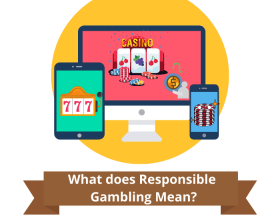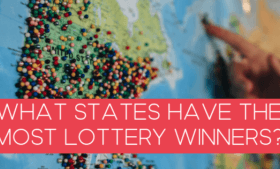Gambling can be an exhilarating activity that provides entertainment and the possibility of winning big. However, for some individuals, gambling can become a compulsive behavior that negatively impacts their lives and those around them. Recognizing the harmful consequences, self-exclusion programs have emerged as a helpful tool for those seeking to take a break from gambling.
What is Self-Exclusion?
Self-exclusion is a voluntary agreement made by gamblers to exclude themselves from participating in gambling activities for a certain period. It is an important step towards regaining control over one’s gambling habits and addressing any potential addiction issues. These programs allow individuals to take a break from gambling and focus on other aspects of their lives, such as family, work, and personal well-being.
How Do Self-Exclusion Programs Work?
Self-exclusion programs are typically offered by casinos, online gambling platforms, and other gambling establishments. The specific process may vary across jurisdictions, but generally, it involves the following steps:
Voluntary Enrollment: Individuals interested in self-exclusion voluntarily sign up for the program. This can usually be done online, by mail, or in person.
Agreement Duration: Participants choose the duration of their self-exclusion period, typically ranging from six months to several years.
Identification: Participants are required to provide identification to ensure their exclusion from gambling venues during the agreed period. This may involve submitting photographs, ID copies, or other applicable forms of identification.
Database Inclusion: The individual’s information is entered into a database that is shared among participating gambling establishments. This ensures that access to gambling facilities is denied during the self-exclusion period.
Support Resources: Self-exclusion programs often provide resources and referrals to support individuals in their journey towards recovery. These resources may include counseling services, helplines, and support groups.
The Benefits of Self-Exclusion Programs
Self-exclusion programs offer several benefits to individuals struggling with gambling addiction:
1. Break the Cycle of Compulsive Gambling
Self-exclusion programs provide a necessary break from the constant accessibility of gambling options. By eliminating access to gambling venues, individuals can focus their attention on breaking the cycle of compulsive gambling and developing healthier habits.
2. Increased Self-Awareness
During the self-exclusion period, individuals have the opportunity to reflect on their gambling behaviors and the impact it has on their lives. This increased self-awareness can be a valuable step towards understanding the underlying causes of their addiction and making positive changes.
3. Access to Support Services
Self-exclusion programs often provide participants with access to support services, such as counseling and support groups. These resources can offer guidance, encouragement, and assistance throughout the recovery process, ensuring that individuals have the necessary tools to overcome their gambling addiction.
Limitations and Considerations
While self-exclusion programs can be effective, it is important to acknowledge their limitations:
1. Reliance on Self-Discipline
Self-exclusion programs require individuals to maintain self-discipline and avoid seeking out alternative gambling options. It is imperative for participants to commit fully to the program and resist temptations that may arise during their exclusion period.
2. Limited Jurisdictional Coverage
Self-exclusion programs are implemented at the regional or organizational level and may not be universally available. This limitation means that individuals who relocate or wish to self-exclude from online gambling sites may encounter challenges in enrolling in a suitable program.
3. Addressing Underlying Issues
Self-exclusion programs focus on temporarily removing access to gambling opportunities. However, in order to maintain long-term recovery, individuals must address the underlying issues that led to their addiction in the first place. Seeking professional help and engaging in therapy can be integral to achieving lasting change.
In Conclusion
Self-exclusion programs offer a valuable opportunity for individuals to take a break from gambling and regain control over their lives. By voluntarily enrolling in these programs, individuals can break the cycle of compulsive gambling, increase their self-awareness, and access support services. While self-exclusion has its limitations, it remains an effective strategy in the broader context of gambling addiction recovery. If you or someone you know is struggling with gambling addiction, consider exploring self-exclusion programs as a step towards a healthier and happier life.






